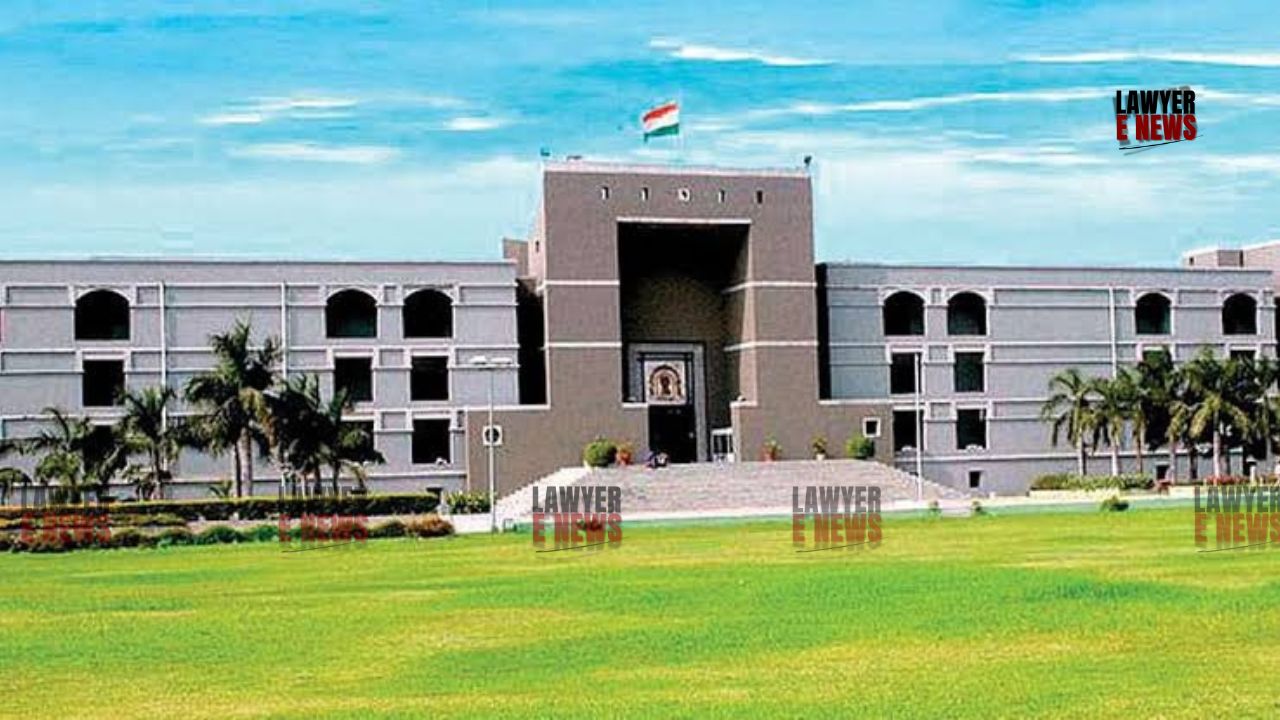-
by Admin
15 February 2026 2:36 AM



Gujarat High Court, in the case of Ibrahimbhai Usmanbhai v. State of Gujarat & Ors., dismissed the second appeal filed by the appellant, Ibrahimbhai Usmanbhai. The appeal challenged the concurrent judgments of the lower courts, which upheld the appellant's dismissal from service following a departmental inquiry for dereliction of duty. The court ruled that there was no substantial question of law under Section 100 of the Code of Civil Procedure, 1908 (CPC), thus affirming the legality and validity of the departmental proceedings and dismissal order.
The appellant, Ibrahimbhai Usmanbhai, a police constable, was involved in a departmental inquiry after a raid conducted at the prisoner's ward found that some inmates had consumed liquor. Subsequently, a charge sheet was filed against the appellant for dereliction of duty, leading to his suspension and initiation of departmental proceedings. Although the appellant was acquitted in the criminal case, the departmental inquiry found him guilty, resulting in his dismissal from service. The appellant's civil suit challenging the dismissal was dismissed by the trial court, a decision upheld by the appellate court. Aggrieved, the appellant filed the present second appeal before the Gujarat High Court.
The key legal issues raised in the appeal included the propriety of a joint departmental inquiry, principles of natural justice, the jurisdiction of civil courts in departmental proceedings, and the effect of an acquittal in a criminal case on the findings of a departmental inquiry.
The appellant raised multiple questions in the appeal memo, alleging errors in the inquiry process, including whether the inquiry officer acted as both prosecutor and judge, and whether the inquiry was conducted in violation of Articles 14 and 16 of the Constitution of India. The High Court, however, observed that these issues pertained to factual aspects and did not constitute substantial questions of law under Section 100 of CPC. "All the questions framed by the appellant relate to factual aspects and cannot be treated as substantial questions of law," the court noted [Para 16].
The appellant argued that the joint inquiry was improper, particularly since his co-delinquent was exonerated. However, the court found that this issue was not raised at the appropriate stage before the departmental authorities or in the appeal and therefore could not be entertained at this stage. Additionally, the court held that the principle of equality did not apply since the co-delinquent was exonerated on different grounds [Para 7, 15].
The court reiterated the limited jurisdiction of civil courts in interfering with departmental proceedings, emphasizing that courts should not act as appellate authorities over the decisions of disciplinary authorities unless there is a violation of principles of natural justice or statutory regulations. "The Civil Court cannot venture into deciding the legality and validity of the decision arrived in disciplinary proceedings as an appellate court," the court observed [Paras 10, 11].
Addressing the appellant's argument that his acquittal in a criminal case should render the departmental inquiry findings invalid, the court clarified that an acquittal in a criminal case does not automatically negate the findings of a departmental inquiry. The court stated that departmental proceedings have a different scope and standard of proof compared to criminal trials, and in this case, the departmental inquiry was conducted in compliance with principles of natural justice [Para 9, 14].
The Gujarat High Court dismissed the second appeal, upholding the concurrent findings of the trial court and the appellate court. It held that the departmental inquiry was conducted fairly, and the dismissal order was lawful and in compliance with principles of natural justice. The court found no error in the decision-making process and determined that none of the questions raised by the appellant amounted to a substantial question of law warranting interference under Section 100 of CPC.
The Gujarat High Court's dismissal of the second appeal affirms the limited role of civil courts in reviewing departmental proceedings and reinforces the principle that an acquittal in a criminal case does not automatically affect the findings of a departmental inquiry. The court underscored the need for adherence to principles of natural justice and statutory regulations in disciplinary proceedings while maintaining the distinction between factual disputes and substantial questions of law in second appeals.
Date of Decision: September 11, 2024
Ibrahimbhai Usmanbhai v. State of Gujarat & Ors.
